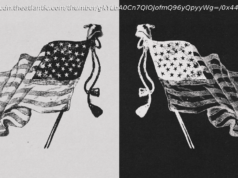Investigators pursuing a suspected serial bomber in the Texas capital faced new threats along with the promise of valuable new leads as their attention shifted to a FedEx shipping center near…
AUSTIN, Texas (AP) – Investigators pursuing a suspected serial bomber in the Texas capital faced new threats along with the promise of valuable new leads as their attention shifted to a FedEx shipping center near San Antonio where a package exploded and the discovery of another, unexploded bomb near Austin’s airport.
Even as they pored through surveillance video footage and collected evidence hoping to get closer to tracking down whoever is behind the series of blasts that have killed two people and seriously wounded four others, a Tuesday night scare caused them to respond to a Goodwill store in southern Austin. It turned out to be an unrelated explosion: Someone dropped off a device sometimes used in military training and it went off, injuring a worker.
Police said they don’t believe it was the work of the bomber, or a copycat. They said such military items are occasionally donated to Goodwill instead of being properly disposed of.
Gary Davis, president and CEO of Goodwill Texas, said the device known as an artillery simulator detonated when an employee tried to handle it.
“In this town, if an incendiary device goes off, everybody just scatters and panics,” Davis said as he stood outside a police barrier huddling with other employees. “We’re all on edge.”
Even before the Goodwill scare, Tuesday had been a busy day. A bomb inside a package exploded around 1 a.m. as it passed along a conveyer belt at a FedEx shipping center in Schertz, northeast of San Antonio and about 60 miles (95 kilometers) southwest of Austin. One worker reported ringing in her ears and was treated at the scene.
Local and federal authorities confirmed that blast was related to four others since March 2.
Later in the morning, police sent a bomb squad to a FedEx facility outside the Austin airport to check on a suspicious package. Federal agencies and police later said that package had indeed contained an explosive that was successfully intercepted and that it, too, was tied to the other bombings.
Authorities also closed off an Austin-area FedEx store where they believe the bomb that exploded in Schertz was shipped. They roped off a large area around the shopping center in the enclave of Sunset Valley and were collecting evidence.
U. S. Rep. Michael McCaul, a Republican from Austin who is chairman of the House Homeland Security Committee, said that investigators have obtained surveillance videos that “could possibly” show a suspect.
“I hope his biggest mistake was going through FedEx,” McCaul, who has spoken to federal investigators and Austin police Chief Brian Manley, said of the bomber in a phone interview.
He added that the person responsible for the bombings had previously been “very sophisticated in going around surveillance cameras.”
“They’ve got a couple of videos that could possibly be the person but they’re not sure at this point,” McCaul said.
Before it exploded, the package had been sent from Austin and was addressed to a home in Austin, Texas Attorney General Ken Paxton said.
In a statement, FedEx officials said the same person responsible for sending the package also shipped a second parcel that has been secured and turned over to law enforcement. A company spokeswoman refused to say if that second package might have been linked to the one reported at the distribution center near the airport.
The Schertz blast came two days after a bombing wounded two men Sunday night in a quiet Austin neighborhood about 3 miles (5 kilometers) from the FedEx store. It was triggered by a nearly invisible tripwire, suggesting a “higher level of sophistication” than agents saw in three package bombs previously left on doorsteps, according to Fred Milanowski, the agent in charge of the Houston division of the U. S. Bureau of Alcohol, Tobacco, Firearms and Explosives.
A criminologist at the University of Alabama said if a single perpetrator is behind the blasts, changing the means of delivery increases the bomber’s chance of getting caught.
“I think it would suggest that the bomber is trying to stay unpredictable,” Adam Lankford said. “But it also increases the likelihood that he would make a mistake.”
Authorities have not identified the two men who were hurt Sunday, saying only that they are in their 20s. But William Grote told The Associated Press that his grandson was one of them and that he had what appeared to be nails embedded in his knees.
During an Oval Office meeting Tuesday, President Donald Trump said whoever is responsible for the bombings “is obviously a very sick individual or individuals” and that authorities are “working to get to the bottom of it.”
Despite bombing tactics that have now shifted from doorstep packages to tripwires and mailed parcels, investigators have repeated prior warnings about not touching unexpected packages. Austin police say they have now responded to more than 1,200 reports of suspicious packages in a little more than a week – without finding anything dangerous.
The Goodwill blast reminded Shahla Mohnandshaw, who grew up in Afghanistan before moving to the U. S. in 2012, of home – and not in a good way. Mohnandshaw’s husband works at the Goodwill where the scare occurred, and she was doing laundry at her apartment complex nearby when she heard helicopters and raced toward the store.
“I was raised on these bombings. I know the feeling of how it feels and how it hurts,” she said, adding that she used to tell people “in America, there will never be these things.”
___
AP videojournalist John Mone in Austin and AP writers Jim Vertuno in Austin and Matt Sedensky in New York contributed to this report.






